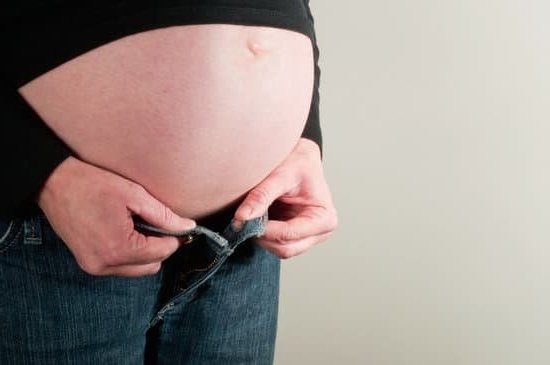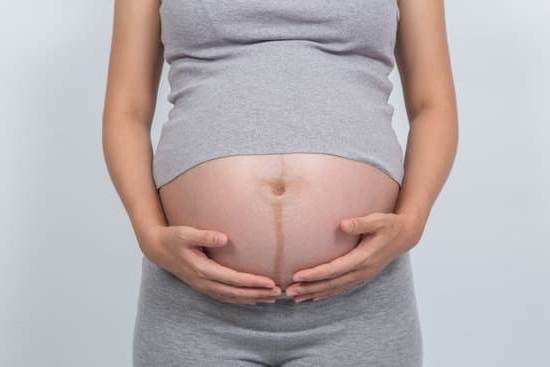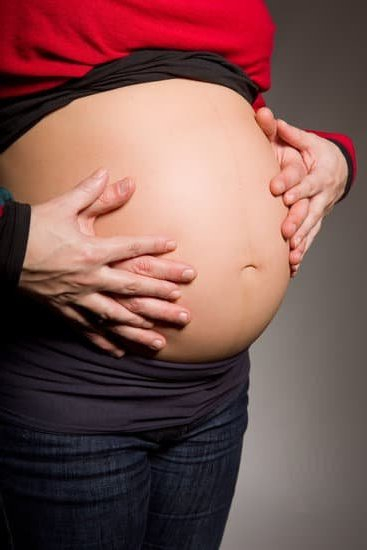Introduction
Pregnancy tiredness is a common symptom experienced by many women during pregnancy. It generally starts in the first trimester, though it may occur earlier or later in some cases. Feeling tired when expecting can often lead to reduced energy levels and a lack of motivation to do everyday tasks. Pregnancy tiredness usually gets worse as the baby grows and puts additional strain on a woman’s body, leading to more exhaustion. Therefore, it’s important to recognize the signs of pregnancy fatigue so that you can take steps to treat and manage your symptoms.
Pregnancy tiredness typically begins towards the end of the first trimester when your body begins producing hormones at an increased rate as well as expanding and preparing for childbirth. Most women experience greater levels of tiredness between weeks 11-14 as their body adapts to drastic changes such as estrogen level increases and blood volume increases. Additional reasons why you may be feeling fatigued include uterus expansion, weight gain, morning sickness, lack of sleep due to frequent bathroom trips or newborn care education classes and psychological effects like stress and anxiety over new parenting duties. Some pregnant women also report that they become extra exhausted around week 30 due to “nesting syndrome” which includes undertaking heavy cleaning tasks and gathering supplies for the baby’s arrival.
Overall, pregnancy can be exhausting journey but it’s important for all pregnant women to listen to their bodies and take time for rest whenever needed. Eating a nutritious diet full of fruit, vegetables, protein, carbohydrates and dairy products will provide essential vitamins minerals which will help boost energy levels naturally while reducing fatigue during pregnancy.
Causes and Symptoms of Pregnancy Tiredness
Pregnancy tiredness is a common symptom of pregnancy and can start as early as the first trimester. It’s caused by several factors, including hormonal changes that cause an increased production of progesterone which has a sedative effect. The physical strain on your body also makes you more susceptible to fatigue.
Common symptoms of pregnancy exhaustion and fatigue involve feeling generally tired and running out of energy quickly. People with this condition may struggle to finish tasks, require long naps, or feel drowsy during the day despite getting enough sleep at night. Other related symptoms include mood swings, loss of appetite, muscle aches, headaches, dizziness, and low morale. Pregnant women who experience these symptoms may be more irritable or have difficulty concentrating or remembering details. In addition, they may struggle to stay asleep during the night due to frequent urination that is prevalent in pregnant women.
Different Timelines
Pregnancy tiredness typically starts in the first trimester, however there are some women who report feeling exhausted even before they get a positive pregnancy test. During the first trimester, fatigue can be attributed to your body adjusting to the hormones that make up for a healthy pregnancy. Rising levels of progesterone and human chorionic gonadotrophin (hCG) released by your placenta can cause you to feel sleepy during the early weeks of pregnancy. It is also normal to experience extreme exhaustion due to disrupted sleep patterns. During this time, a woman will usually require more rest than usual and feel run down more quickly than she did before becoming pregnant.
As your pregnancy progresses, many women feel less tired during the second trimester due to better controlling their nausea and morning sickness, as well as an increase in energy levels from around 20 weeks. This is often called “the honeymoon period” because many women report feeling energized and growing increasingly excited about welcoming their new baby into their lives.
In the third trimester, fatigue can again become an issue due to increasing weight on a woman’s body putting additional strain on her joints and muscles, which can be further exacerbated by disturbed sleep owing to uncomfortable sleeping positions or needing frequent trips to the bathroom in the night-time hours. The anxiety associated with preparing for childbirth may also contribute towards exhaustion for many women embarking on one of life’s greatest journeys into motherhood. Therefore it is important for expectant mums in their final months of pregnancy to take time out for themselves and cherish those moments of peace where they can rest peacefully and listen calmly to their baby’s heartbeat inside them.
Tips for Managing Tiredness During Pregnancy
Pregnancy tiredness usually begins in the first trimester, typically in the first 8-12 weeks. This is an especially common symptom among mothers carrying twins or multiple babies. Women can also experience extreme fatigue once they enter the third trimester of their pregnancy as they are close to their due date and hormones begin to change.
There are a few tips for managing tiredness during pregnancy that can help new mothers feel more energized and give them more control over their health:
1. Make sure you are getting enough rest each night – ensure you are getting 7-8 hours of sleep from a quality mattress;
2. Try to reduce stress wherever possible – this may mean taking breaks throughout the day, engaging in relaxation activities such as yoga or meditation, or seeking professional help;
3. Eat a balanced diet – make nutritious food choices such as fruits, vegetables and complex carbohydrates;
4. Exercise regularly – as approved by your doctor, 30 minutes of moderate exercise every day increases energy levels;
5. Drink plenty of fluids – dehydration can reduce energy levels, so aim to drink at least 8 glasses of water each day;
6. Don’t overdo it – learn your limits and don’t push yourself too far when it comes to activities while pregnant;
7. Talk to your doctor if the fatigue is impacting daily life – speak up if you’re feeling overwhelmed or fatigued on a regular basis so that any underlying issues can be addressed right away.
Essential Nutrients
Pregnancy tiredness typically begins to kick in around the 4th to 6th week of gestation and is largely due to the body’s increased need for certain essential nutrients. These include folate, iron, zinc, vitamin D and omega-3 fatty acids among others. When levels of these vital nutrients become low, pregnant women may experience fatigue along with other symptoms such as headaches, a weakened immune system or digestive problems. For this reason, pregnant women should ensure that they are getting enough of these essential nutrients from food or supplements. Getting sufficient sleep is also fundamental for staying energized during pregnancy; it allows the body time to process nutrients and produce energy. Women are advised to get seven to nine hours of sleep a night and take regular breaks throughout the day for additional restorative rest. Incorporating physical activity into daily routines can help boost energy as well.
Resources and Support
Pregnancy tiredness can start as early as the first trimester of pregnancy and become more pronounced in the third trimester. It is normal to feel exhausted, overwhelmed and out of energy during this time.
It is important to remember that it is perfectly all right to ask for help during this period. There are many resources available such as family members, friends, or professional resources who can provide support and guidance during this time. Investing in self-care practices like yoga, meditation and massage can also be beneficial. Additionally, talking with medical professionals who have experience in helping expectant mothers manage fatigue can be helpful. Working on reducing stress levels through both lifestyle and diet changes can go a long way towards combatting pregnancy tiredness.
Furthermore, joining local support groups featuring pregnant women can be a great way to connect with others who are going through similar situations. These interactive communities often share advice on dealing with the tiredness felt during pregnancy, and offer emotional support which helps those affected feel less isolated in their experience. Reaching out for help when feeling overwhelmed by physical and mental fatigue will ensure that the mother has both quality rest and emotional support while they adjust to their new life’s journey as an expectant parent.
A Summary
Pregnancy can be an exciting time, but it can also come with periods of intense fatigue. For many women, the tiredness associated with pregnancy begins in the first trimester and can continue through the entire course of pregnancy. The cause of this fatigue is thought to be related to hormonal changes that occur during the early stages of pregnancy, when the body is adjusting to its new state.
The physical and emotional changes associated with pregnancy are common experiences for all pregnant women. As such, it’s important to remember that you’re not alone in your journey and that there are support systems available both from family, friends and health care professionals should you need it. Though you may experience fatigue at various points throughout your pregnancy, try to remind yourself that each individual woman’s experience is unique – no two journeys are ever exactly alike. It’s also important to stay well-rested at all times, as adequate sleep helps strengthen both mind and body; taking regular naps or just curling up with a good book can make all the difference when it comes to managing your tiredness during this special time in your life

Welcome to my fertility blog. This is a space where I will be sharing my experiences as I navigate through the world of fertility treatments, as well as provide information and resources about fertility and pregnancy.





